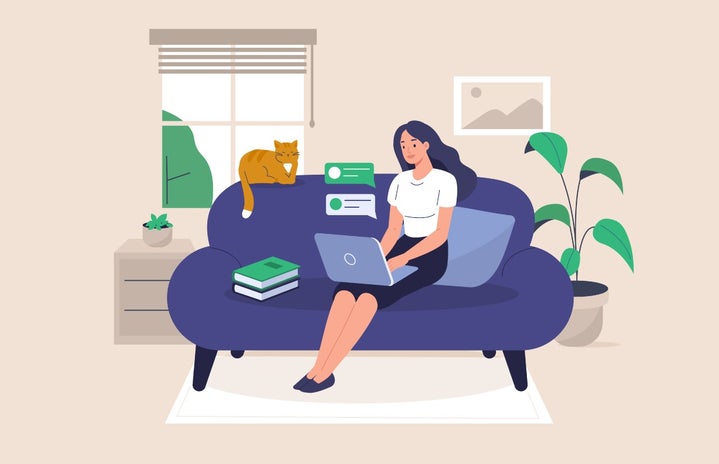Since the pandemic began, employment has been one of the hardest hit sectors of the economy in 2020 with more than 1 million unemployment claims in the week of Aug. 15. But as we try to navigate the future of work through cancelled opportunities, online classes, and endless Zoom meetings, the new normal is most evident in the gig-economy.
The gig-economy is driven by self-employed freelancers that are paid per assignment, rather than traditional scheduled hours. The most popular freelance services are rideshare services, programming, content creation, data analysis, and brand ambassadorships. Any independent service that pays per client request is still freelance work.
If you want to stay busy while at home, make up for a lost internship, or just want to make some extra money, here’s what you need to know to get started as a freelancer.
So what is the opportunity cost between employment and freelancing?

As an employee, you work for hourly pay, salary, and/or commission. Benefits like holidays, insurance, and sick leave are also secured with an employer. As a freelancer, although you may enjoy more time freedom, sometimes you will work odd hours to complete an assignment, or wait in limbo when there is no available work.
If there was an angry customer at your job, a manager would likely defend you or the organization had a protocol for dealing with upset patrons. But as a freelancer, only you decide how to move forward with a dissatisfied client. The brunt of the work as an independent contractor is time management and client relations.
On the upside, freelancers have the freedom to choose their work, hours and their office. You can work full-time or pick up a couple gigs as a side hustle. Need to boost your portfolio? Add past projects to your resume. This shows that you have marketable value and are highly skilled. Gig workers simultaneously build a network of people and companies to provide testimonials and recommendations for a job well done. And best of all, the better you get, the more you get to increase your pay on your own terms.
What service will you sell?

Do you want to do what you love, do what you’re good at, do what pays the most or do what has the greatest impact?
Second, your previous answer should also reflect the needs of your target market. Our greatest needs are tied to health, happiness/entertainment,self-esteem, finances, education and problem solving
Do you want to help new business owners with brand strategy? Do you want to refine software for developed companies and institutions? Can you help others create an amazing resume? Do you want to assist busy individuals?
Once you’ve finally nailed a particular gig that both motivates you and is necessary, start the research process. The hallmark of a great freelancer is one whose services and style matches the needs of their client. If you’re into fashion, keep your focus on how you can help those specific industries. You learn more about the fashion industry as you go. YouTube, LinkedIn Learning and Skillshare are great resources to help you remain competitive at your own pace. Your specialty is your superpower.
Build clientele and determine prices

People in your network are great as your first clients because their feedback will encourage you to continue while it still serves as a constructive trial and error process.
Especially in the midst of the looming pandemic, a new client base has just opened. People have more time than ever to consider goals they previously were too busy to realize. Can you help with credit repair, early business development or personal training.
Though the price you charge per service is completely up to you, find the happy medium where you are not working for too little or charging too high to attract any business.. Consider what other freelancers in your field are charging. What is the value of your time, education, and personal brand? What is your service’s value to your market? Don’t be afraid to change the price as you learn more.
Promote yourself!

Just as traditional companies do, it may be necessary to outline your brand voice and boundaries in your business plans so that you are not flustered by shocking client personalities and requests.
Upwork, Fiverr, Freelancer, Patreon, BloggingPro are a few freelance platforms where you can display your services. According to Upwork, more than 30% of Fortune 500 companies source from their platform, and that number is only increasing.
If your work relies on proximity like a yoga instructor or interior designer, social media will be your biggest asset for now. A business page on LinkedIn or Instagram is an open portfolio, a direct message board for contractor and client and the internet has the largest audience reach to date..
Once you’re sure freelancing is for you, trademark your brand name (if applicable), file for the appropriate licenses with your secretary of state and register the proper financial and legal documentation to make it all official.
All of these guidelines coupled with solid discipline, quality and customer service will help you ride into the new normal with confidence!



